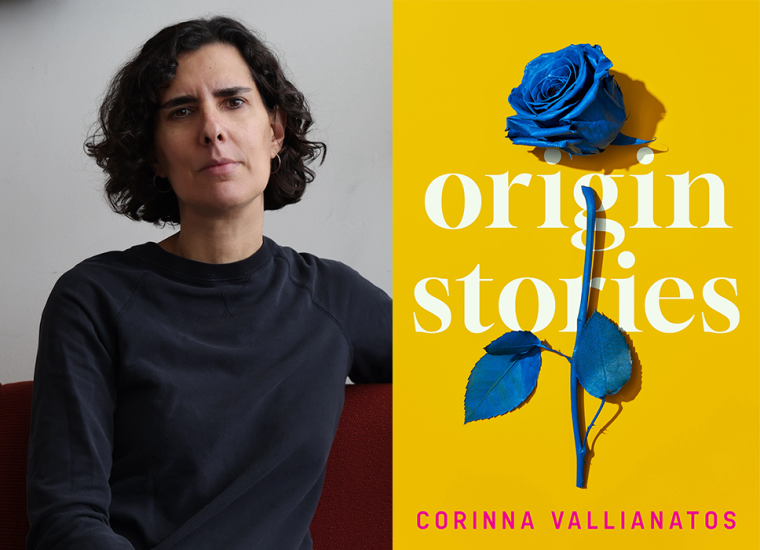This week’s installment of Ten Questions features Corinna Vallianatos, whose story collection Origin Stories is out today from Graywolf Press. Set in Southern California and Virginia, these stories explore the sources of love, marriage, motherhood, friendship, artistic ambition, restiveness, and shame. Deb Olin Unferth said, “These dark, devastating stories are love meditations, each offering a secret lesson on how to navigate our new world as woman, daughter, mother, artist. Page-turners each one, full of power, brilliance, and racing energy.” Corinna Vallianatos is the author of the novel The Beforeland (Acre Books, 2020), and the story collection My Escapee (University of Massachusetts Press, 2015), which won the 2011 Grace Paley Prize for Short Fiction and was a New York Times Book Review Editors’ Choice. Vallianatos is the recipient of fellowships from the MacDowell Colony and the Bread Loaf Writers’ Conference. Her stories have been published in Tin House, McSweeney’s, A Public Space, the Kenyon Review, the Idaho Review, StoryQuarterly, and elsewhere.

Corinna Vallianatos, author of Origin Stories. (Credit: Ellen Reyes)
1. How long did it take you to write Origin Stories?
The oldest of the stories in the collection, “A Neighboring State,” was written in 2013—but most were written in the last five or six years.
2. What was the most challenging thing about writing the book?
In the case of the stories that are mostly plotless, I needed to find something as propulsive as plot, something to move the narratives forward. Observation? Surprise? Emotional detail? Language? The body of thought? I was interested in how a story can build to irresolution, which may seem counterintuitive. If a story gathers force by what it accrues, this kind of ending is a letting go.
3. Where, when, and how often do you write?
The dining room table, my desk, or the couch, in the morning, with a cup of strong coffee, nearly every day.
4. What are you reading right now?
The story collection Canoes (Archipelago, 2024) by Maylis de Kerangal, translated from the French by Jessica Moore. “Mustang,” in particular, tells an incredible story of the beauty and brutality of America through the eyes of a Frenchwoman.
5. Which author, in your opinion, deserves wider recognition?
The English writer Gwendoline Riley isn’t unknown, but she writes such precise, crushing, and darkly funny short novels I want to mention her anyway. They are fleet and ruthless and I love them all, especially My Phantoms (New York Review of Books, 2022), First Love (Melville House, 2017), and Opposed Positions (Jonathan Cape, 2012). Riley writes keen dialogue without a note of falseness.
6. What is the biggest impediment to your writing life?
My own willingness to go online and emerge forty-five minutes later churning with New York Times articles and old interviews with Harriet Wheeler and David Gavurin and houses for sale that I can’t afford.
7. What is one thing that your agent or editor told you during the process of publishing this book that stuck with you?
Carmen Giménez, my editor at Graywolf, wrote in a note that my narrators’ curiosity about others also describes an ethos in the stories. I love the idea of curiosity being an animating force in the collection.
8. If you could go back in time and talk to the earlier you, before you started Origin Stories, what would you say?
You’re going to become a devotee of a kind of shoe called Klogs, even though you don’t work in the medical field.
9. Outside of writing, what other forms of work were essential to the creation of Origin Stories?
I moved after Origin Stories was written, but I revised the stories while I was still living part-time in California and part-time in Virginia, and feeling unsettled drove me to depend on the stories, in some way.
10. What’s the best piece of writing advice you’ve ever heard?
Create a fictional structure and fill it with something true.







